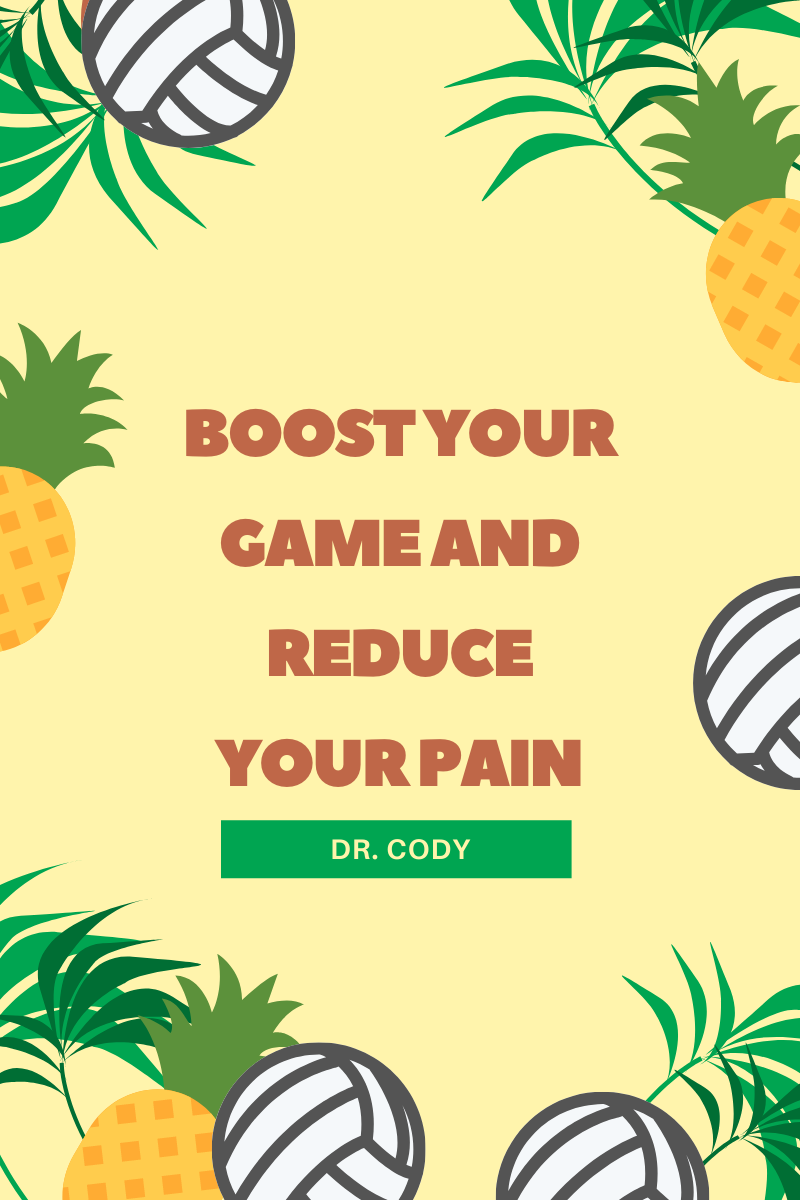Boost Your Game and Reduce Your Pain - A look at how your posture effects your play

Want to improve your ability to serve-receive and decrease back pain at the same time?
It’s all about creating a strong and stable base to receive and pass from. If you activate your pillar prior to passing, you will have an improvement in your ability to control the result of your pass.
The pillar I speak of is the base on which your body moves on and through. It spans from your shoulders to your pelvis. We commonly underutilize our core for stability and we lose optimal force production because of it. A good trick to try next time you are receiving a serve is exhaling all of your air before the ball gets there. This will help you to create a better abdominal contraction and stronger pillar to pass from.
Think of a chair you sit in. If one of the legs were not secured, the chair would be wobbly and it would put more stress on the seat and the other legs. The body wants to work together, because it runs more efficiently that way.
Just like the chair, when we have faulty stability, not only do we lose power in our hips and trunk, but we tend to ask more of our back, neck and shoulder muscles. As you can probably speculate, these over-stressed muscles will eventually start to fatigue and get agitated.
When we consistently practice with poor posture and body mechanics, it can lead to a higher risk for injury. Take a moment to prioritize your body and your goals. Remember, you only get one body.
No one wants to be injured. And when playing with and through pain you should take into consideration the risk/reward of this decision. Becoming more aware of your posture and assessing your movement can help you to identify what you should address to reduce pain/stiffness and improve your overall performance.
Common faults seen when serve-receiving:
- Rounded shoulder posture
- Upper Cervical extension (always looking up) - Forward head
- Rib flaring during serve receive (also with) jumping and the cocking phase of swing
- Extending through lumbar spine
Good serve-receive static and dynamic posture tips:
- Get your shoulders away from your ears
- Drive ribs down and hips back
- 3 points of foot contact - big toe, little toe, & heel
- Exhale before you pass
When the workload is dispersed throughout the body, the easier it is to maintain the effort and output.
When the workload is thrown on a smaller group of muscles, they will tire faster and start to revolt eventually.
Sometimes we know that we have pain, but we don't know where it is coming from or how to make it stop.
I understand this can be scary and hard for us mentally and physically.
If you're in pain when you're playing or for way too long after you're playing, I recommend you see a physical therapist.
Are you interested in working with me?
Book a call with me to see if we are a good fit!

